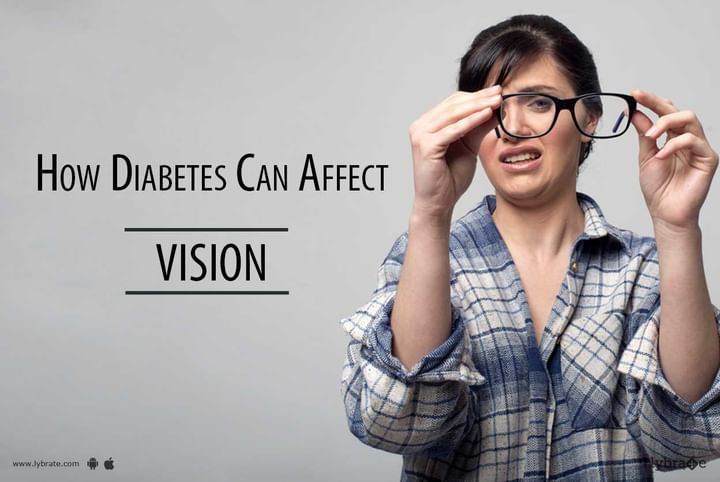How Diabetes Can Affect Vision
Diabetes is the condition where the blood glucose levels in your body tend to be quite high and can have an adverse effect on many of the organs in your body. The eyes are no exception and can be quite adversely affected by diabetes as well.
Let's look at the various problems you could face if you have diabetes:
1. Blurry vision: Diabetes can cause the lens in the eye to swell and this will affect the way you see. Because of the increased lens size, the eyes have difficulty in focusing on objects resulting in blurry vision. You will have to get your blood sugar levels back to normal and only then the vision will begin to correct itself. This will however take time to happen.
2. Cataract: Blurry vision for an extended period of time which progressively gets worse can be a symptom of cataract. Although cataracts can develop even with normal patients, they tend to accelerate and happen earlier in adults who have diabetes. Cataracts are usually fixed with surgery where the natural lens is removed and replaced with an artificial lens.
3. Diabetic retinopathy: Diabetic Retinopathy and Retinal Detachment are one of the leading causes of blindness in adults who suffer from diabetes. The retina is a very important part of the eye which allows us to see the images by capturing light and then sending them to the brain via the optical nerve. With diabetic retinopathy the smaller blood vessels in your retina may get damaged and thus end up causing damage to your vision. This can be of three types:
- Proliferative Retinopathy: In this condition very small blood vessels grow from the surface of the retina. The retina is the film at the back of your eye , and the tiny blood vessels are capillaries. These growing blood vessels are very delicate and bleed easily. If you have had diabetes for years your retinae may develop this condition. As the retina is damaged by diabetes, the diseased retina releases special growth chemicals. These chemicals make tiny blood vessels grow: these are called 'new blood vessels.
- Background Retinopathy: Background or nonproliferative diabetic retinopathy (NPDR) is the earliest stage of diabetic retinopathy. With this condition, damaged blood vessels in the retina begin to leak extra fluid and small amounts of blood into the eye.
- Maculopathy: The macula is the central area of your retina. It is responsible for all your sharp vision, such as used for watching TV or reading. It can become damaged in diabetes, with leaks developing (oedema).
4. Glaucoma: This is a condition where fluids build up inside the eye and it results in the pressure within it building up. This may damage the blood vessels within the eye and cause vision changes. Problems within the eye may not be detected till you experience vision loss. Some of the symptoms of glaucoma may include:
- Blurry vision
- Watering from Eyes
- Difficulty in vision
- Pain in the eyes
- Lights appear to have halos
- Headaches
Treatments: Blurry vision also tends to go away slowly once the level of blood glucose is controlled either via medicines or by diet changes. However, glaucoma or diabetic retinopathy may require a range of medicines to ease the pressure on the eye or to discharge fluid buildup. If none of these works, then relevant surgery may be required to resolve the problems.



+1.svg)
